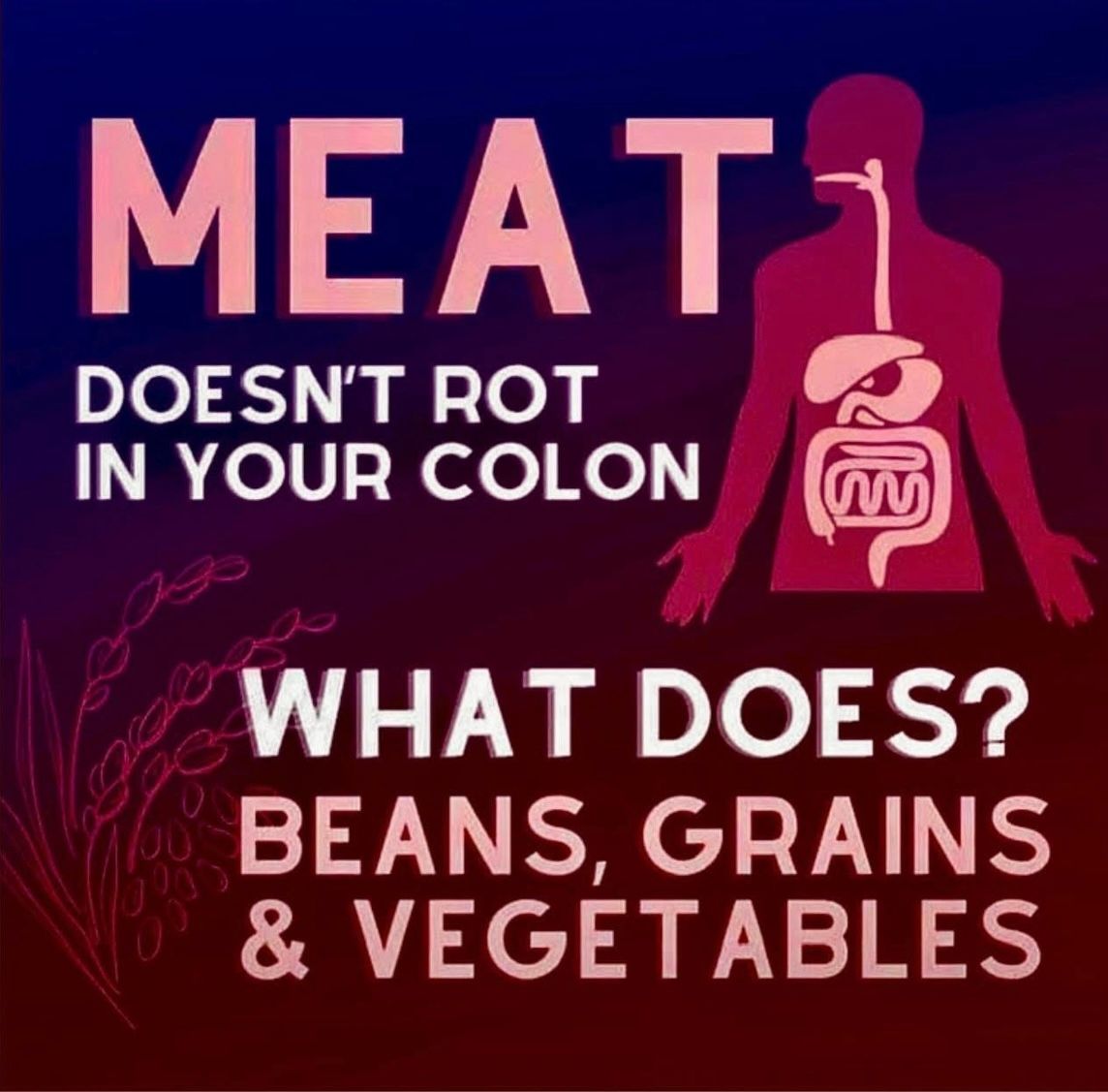Does Meat Rot in Your Colon? The Truth About Digestion and Fermentation
Understanding what really happens to meat, beans, grains, and vegetables in your digestive system
You may have heard the claim that meat sits and rots in your colon while plant foods pass through cleanly. This idea has been repeated in documentaries, on social media, and even in some nutrition circles, but it is not supported by digestive science. In reality, meat and plant foods are broken down differently in your body, and neither truly rots in the colon under normal circumstances.
Meat is primarily composed of protein and fat. Digestion of meat begins in the stomach, where strong stomach acid and enzymes like pepsin break down proteins into smaller chains called peptides. From there, the small intestine uses enzymes from the pancreas and bile from the liver to continue breaking proteins into amino acids and fats into fatty acids. By the time meat reaches your large intestine, most of it has already been absorbed into your bloodstream. Only small amounts of undigested protein or connective tissue remain. These remnants may undergo bacterial putrefaction in the colon, producing compounds like ammonia or hydrogen sulfide, but this is minimal in a healthy digestive system.
Beans, grains, and vegetables have a different path. They contain dietary fiber, resistant starch, and certain carbohydrates that human enzymes cannot break down in the small intestine. Instead, these components pass into the colon intact. Here, your gut bacteria ferment them, producing beneficial short-chain fatty acids like butyrate, along with gas. This fermentation process is not rotting in the sense of decay — it’s a natural and healthy function of the microbiome.
The confusion often comes from mixing up fermentation and putrefaction. Fermentation refers to the breakdown of carbohydrates by beneficial bacteria, while putrefaction is the bacterial breakdown of proteins that can produce foul-smelling byproducts. Both can happen in the colon depending on what you eat, but neither process means food is just sitting there rotting for days on end.
The speed of digestion depends on many factors, including the type of food, your hydration levels, your gut microbiome balance, and your overall digestive health. In a healthy person, food moves through the digestive tract in roughly 24 to 72 hours. Meat is largely digested and absorbed before it ever reaches the colon, while plant fibers intentionally make it to the colon to feed beneficial bacteria.
The takeaway is simple. Meat does not rot in your colon. The real science shows that protein and fat are absorbed early in the digestive process, and plant foods contribute fiber for fermentation. Both play roles in a healthy diet depending on your personal needs and goals. Understanding how digestion actually works can help you make better food choices and avoid falling for nutrition myths that rely on fear rather than facts.
If you’re struggling with digestive issues, fatigue, brain fog, or other chronic symptoms, I offer a free 15-minute consultation to help you uncover the root cause and create a personalized healing plan. Book your call today at www.executivefunctionalhealing.com.

